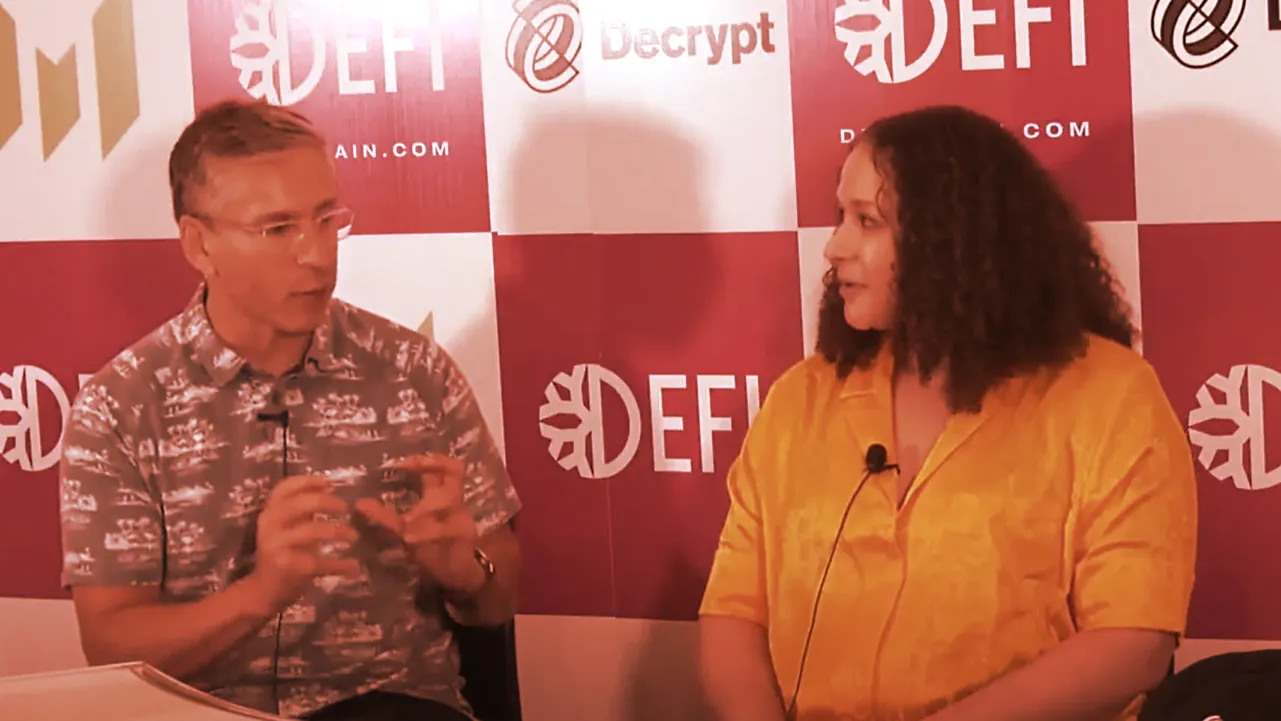At this year’s Messari Mainnet summit, Paul Brody, the blockchain lead at Big Four accounting firm Ernst & Young (EY) told Decrypt that his company is “all in on public blockchains.”
Recounting EY’s involvement in crypto, he reiterated how the firm was indeed one of the earliest adopters in the traditional finance world.
In 2015, EY formed a blockchain division to pursue work on public blockchains. Initially, it worked with private blockchains too, but that has “really decreased over the years,” Brody told Decrypt.
He elaborated: “Unlike anybody else, we’re actually building tools and applications in this space, so we built, for example, our own blockchain audit platform, where we can do on-chain and off-chain transaction reconciliation.”
EY’s in-house arsenal currently contains a smart contract testing tool developed by its security team in Israel, a system called EY Ops Chain which uses tokenization for traceability and transparency within supply chains, and a Zero Knowledge (ZK) Optimistic Layer 2 Rollup for affordable transaction privacy for enterprises.
This latter tool was donated into the public domain and refashioned into Polygon Nightfall.
7 years of EY’s blockchain services
Brody chalked EY’s early adoption of crypto down to the fact that senior leadership was convinced of the power of blockchain technology. "This will be the future path for most business-to-business transactions and we need to not just know a little bit about it," said Brody. "We need to be all in.”
According to Brody, roughly 65% of EY’s work in blockchain revolves around audits.
The remaining slice is much broader and includes NFT tools, food traceability, and improving environmental, social and governance (ESG) factors. Brody also said the company is building a carbon offset marketplace and carbon tracking tools.
“The pattern we see over and over again is that companies first want to dip their toe in with something that’s relatively easy. If you’re a bank that means maybe selling Bitcoin and to clients," he said. "Over time they move up to more substantive activities: issuing assets, selling products and services, building DeFi tools. I like to think of it as a slippery slope.”
The bear market and Ethereum
Finally, Brody spoke at length about how the current bear market affects EY’s blockchain division, adding that its clients in financial services do indeed care about the hefty price fluctuations. Still, he said, they see the volatility as "a feature, not a bug."
The industry clients are much different, however. Instead, "they look at Ethereum as a public infrastructure for computing and business operations and what matters to them is the price of gas and the scalability of the network, not the price of the asset.”
Brody also said that EY has taken a “very hard line” against private blockchains and proprietary technology in spite of what clients may occasionally ask for.
This also makes the company especially bullish on Ethereum.
“We made a very strategic decision to only build on Ethereum. I have a limited engineering budget. I want us to be the best on earth at Ethereum—which is the largest market—not pretty good at 20 other things. The best on earth," said Brody. "How long is it gonna take for my competition to adopt this strategy? I hope a really really long time. ”

